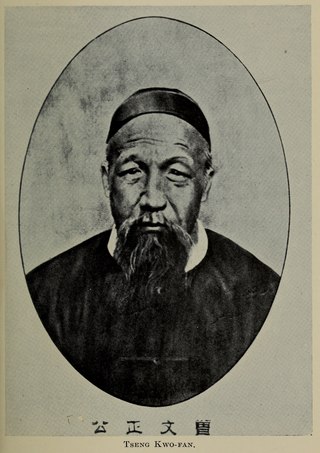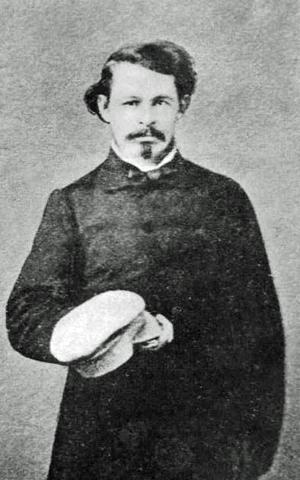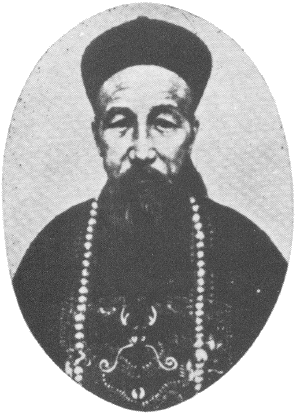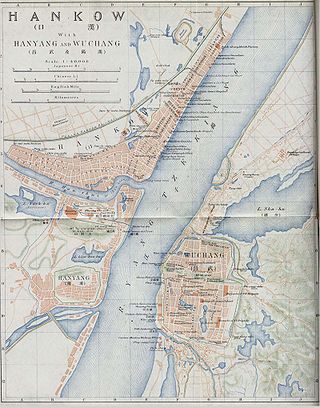
The Taiping Rebellion, also known as the Taiping Civil War or the Taiping Revolution, was a civil war in China between the Manchu-led Qing dynasty and the Hakka-led Taiping Heavenly Kingdom. It lasted from 1850 until the fall of Tianjing in 1864, although the last rebel army was not wiped out until August 1871. The conflict resulted in approximately 20 to 30 million deaths, approximately one-tenth to one-twentieth of China's population at the time. The established Qing government won decisively, although at great cost to its fiscal and political structure.

The Second Opium War, also known as the Second Anglo-Sino War, the Second China War, the Arrow War, or the Anglo-French expedition to China, was a colonial war lasting from 1856 to 1860, which pitted the British Empire and the French Empire against the Qing dynasty of China.

The Xianfeng Emperor, also known by his temple name Emperor Wenzong of Qing, personal name Yizhu, was the eighth emperor of the Qing dynasty, and the seventh Qing emperor to rule over China proper, reigned from 1850 to 1861. During his reign, the Qing dynasty experienced several wars and rebellions including the Taiping Rebellion, Nian Rebellion, and Second Opium War. He was the last Chinese emperor to exercise sole power.

Zeng Guofan, Marquis Yiyong, birth name Zeng Zicheng, courtesy name Bohan (伯涵), was a Chinese statesman and military general of the late Qing dynasty. He is best known for raising and organizing the Xiang Army to aid the Qing military in suppressing the Taiping Rebellion and restoring the stability of the Qing Empire. Along with other prominent figures such as Zuo Zongtang and Li Hongzhang of his time, Zeng set the scene for the Tongzhi Restoration, an attempt to arrest the decline of the Qing dynasty. Zeng was known for his strategic perception, administrative skill and noble personality on Confucian practice, but also for his ruthlessness in repressing rebellions.

Songjiang is a suburban district of Shanghai. It has a land area of 605.64 km2 (233.84 sq mi) and a population of 1,582,398 (2010). Owing to a long history, Songjiang is known as the cultural root of Shanghai.

Jiangnan is a geographic area in China referring to lands immediately to the south of the lower reaches of the Yangtze River, including the southern part of its delta. The region encompasses the city of Shanghai, the southern part of Jiangsu Province, the southeastern part of Anhui Province, the northern part of Jiangxi Province and the northern part of Zhejiang Province. The most important cities in the area include Anqing, Changzhou, Hangzhou, Nanjing, Ningbo, Shaoxing, Suzhou, Wuxi, Wenzhou, Yangzhou and Zhenjiang.

Li Xiucheng was a military rebel commander opposing the Qing dynasty during the Taiping Rebellion. He was born to a peasant family. In 1864, he was captured and interrogated following the third and final Battle of Nanjing. He was then executed by Zeng Guofan.

Frederick Townsend Ward was an American sailor and soldier of fortune known for his military service in Imperial China during the Taiping Rebellion.
Hong Rengan was an important leader of the Taiping Rebellion. He was a distant cousin of the movement's founder and spiritual leader Hong Xiuquan. His position as the Gan Wang resembled the role of a prime minister. He is a noted figure in history because of the sweeping reforms attempted under his rule, and because of his popularity in the West.

Anqing is a prefecture-level city in the southwest of Anhui province, People's Republic of China. Its population was 4,165,284 as of the 2020 census, with 804,493 living in the built-up area made up of three urban districts. Anqing is famous as the birthplace of Chen Duxiu, one of the founding fathers of the Chinese Communist Party, who served as the first General Secretary of the Chinese Communist Party from 1921 to 1928. Huangmei opera, a renowned Chinese opera style, originated in the city of Anqing. This captivating art form gained immense popularity since the 1950s, largely attributed to the exceptional talents of local actors and actresses from Anqing. Huangmei opera is a significant cultural treasure that defines the rich heritage of the city of Anqing.

"Ever Victorious Army" was a small imperial army that fought rebels in late-19th-century China. It was directed and trained by Europeans. The Ever Victorious Army fought for the Qing dynasty against the rebels of the Nian and Taiping Rebellions.
Chen Yucheng, born Chen Picheng, was a Chinese general during the Taiping Rebellion and later served as the Heroic (Ying) Prince of the Taiping Heavenly Kingdom in the later stages of the rebellion, nicknamed "Four-eyed Dog" because of two prominent moles below his eyes.

Shi Dakai, born in Guigang, Guangxi, also known as Wing King or phonetically translated as Yi-Wang, was one of the most highly acclaimed leaders in the Taiping Rebellion and a poet.

The Xiang Army or Hunan Army was a standing army organized by Zeng Guofan from existing regional and village militia forces called tuanlian to contain the Taiping Rebellion in Qing China. The name is taken from the Hunan region where the Army was raised. The Army was financed through local nobles and gentry, as opposed to through the centralized Manchu-led Qing dynasty. The army was mostly disbanded by Zeng after the re-capture of the Taiping capital at Nanking.
The Battle of Shanghai (太平軍二攻上海) was a major engagement of the Taiping Rebellion that occurred from June 1861 to July 1862. British and French troops used modern artillery on a large scale for the first time in China. Cannon fire inflicted heavy casualties on the Taiping forces, whose commander Li Xiucheng was wounded in the left leg by a shot fired from a cannon.

The Taiping Heavenly Kingdom (1851–1864) was a theocratic absolute monarchy which sought to overthrow the Qing dynasty. The Heavenly Kingdom, or Heavenly Dynasty, was led by Hong Xiuquan. Its capital was at Tianjing, present-day Nanjing. The unsuccessful war it waged against the Qing is known as the Taiping Rebellion.
Tan Shaoguang was a military leader of the Taiping Rebellion. During his military tenure he was known as the King of Mu (慕王). As a young soldier he joined the Jintian Uprising. After several years he was promoted to general, and led the Taiping forces to many military victories. He was awarded the E An in 1861. He was murdered by traitors after an interrogation in 1863.

The Battle of Anqing (安慶之戰) was a prolonged siege of the prefecture-level city of Anqing in Anhui, China, initiated by Hunan Army forces loyal to the Qing Dynasty against the armies of the Taiping Heavenly Kingdom. The siege began in September 1860 and ended on September 5, 1861, when imperial forces under the command of Zeng Guoquan breached the walls of the city and occupied it.
Events from the year 1860 in China.

The Battle of Wuchang occurred in 1852 during the Taiping Rebellion in Wuchang, part of the modern-day city of Wuhan.













